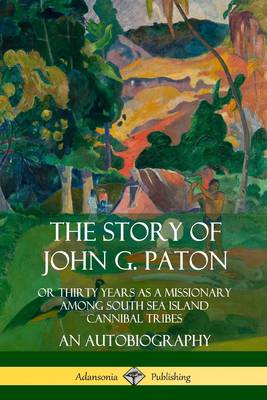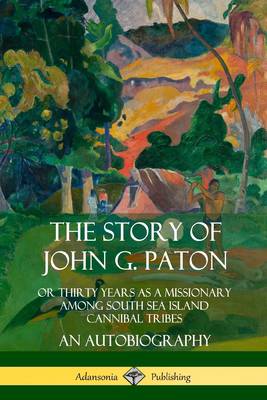
- Afhalen na 1 uur in een winkel met voorraad
- Gratis thuislevering in België vanaf € 30
- Ruim aanbod met 7 miljoen producten
- Afhalen na 1 uur in een winkel met voorraad
- Gratis thuislevering in België vanaf € 30
- Ruim aanbod met 7 miljoen producten
Zoeken
The Story of John G. Paton
Or Thirty Years as a Missionary Among South Sea Island Cannibal Tribes, An Autobiography
John G Paton
Paperback | Engels
€ 21,95
+ 43 punten
Omschrijving
John G. Paton's thrilling autobiography relates a life spent as a missionary among the cannibal peoples of the South Sea Islands, and the education and development he helped bring to those remote isles. Born in Scotland to a religious family of rural Dumfriesshire, Paton was seemingly destined to live a life amid his traditional culture. However, as a studious young man Paton felt a calling from God and visited the city of Glasgow. He became versed in both theology and medicine and, in 1858 mere weeks after being ordained as a Presbyterian priest, Paton and his first wife Mary Ann Robson set sail for the South Sea Islands. Christened the New Hebribes, the isles which the missionary Paton settled upon are today part of the nation of Vanuatu. On arrival in early 1859, the primitive conditions of the natives - the fact they were generally naked, lived in simple huts, and would occasionally practice cannibalism - was a shock to Paton and his young wife.
Specificaties
Betrokkenen
- Auteur(s):
- Uitgeverij:
Inhoud
- Aantal bladzijden:
- 216
- Taal:
- Engels
Eigenschappen
- Productcode (EAN):
- 9780359748037
- Verschijningsdatum:
- 23/06/2019
- Uitvoering:
- Paperback
- Formaat:
- Trade paperback (VS)
- Afmetingen:
- 152 mm x 229 mm
- Gewicht:
- 322 g

Alleen bij Standaard Boekhandel
+ 43 punten op je klantenkaart van Standaard Boekhandel
Beoordelingen
We publiceren alleen reviews die voldoen aan de voorwaarden voor reviews. Bekijk onze voorwaarden voor reviews.











